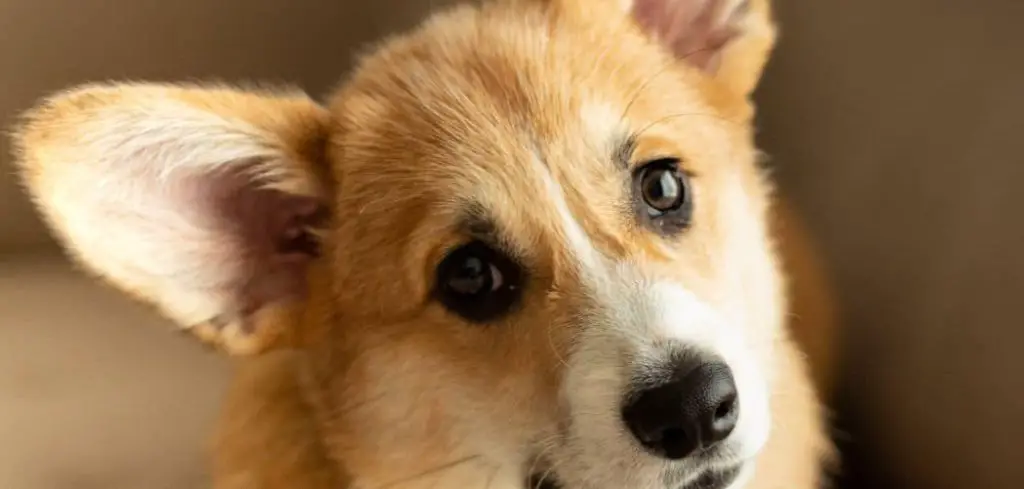Chewing is a natural behavior in dogs, but when it becomes excessive or destructive, it can leave owners feeling frustrated and concerned.
Some dogs may chew their toys endlessly, to the point of wearing them down quickly, while others seem fixated on chewing as a way to cope with energy, anxiety, or discomfort.
We outline the common reasons for dogs excessively chewing toys, what you can do at home, and when to seek veterinary help.
Table of Contents
Dog Excessively Chewing Toys — Why It Happens
Dogs may excessively chew toys for reasons ranging from boredom and teething to anxiety, dental discomfort, or even breed tendencies. Chewing releases endorphins, relieves stress, and provides mental stimulation, so for many dogs, it becomes a soothing habit.
In other cases, it may be a signal that your dog’s needs for exercise, play, or comfort aren’t being fully met.

Dog Excessively Chewing Toys: Common Causes
Boredom and Lack of Stimulation
Dogs with too much pent-up energy often turn to chewing as a way to entertain themselves.
When a dog doesn’t get enough physical exercise or mental engagement, toys become an outlet.
You may notice their dog chewing nonstop, destroying toys faster than expected, or carrying them around constantly.
While not always harmful, this behavior indicates unmet needs for activity, which can escalate into destructive chewing of furniture or household items.
Read more: Dog Excessively Licking Bed (Why it happens)
Teething in Puppies
Puppies between 3 and 7 months old go through teething, which makes their gums sore and uncomfortable. Excessive chewing helps relieve the pain and pressure.
A teething puppy may gnaw on toys more vigorously than usual, sometimes even preferring harder surfaces like chair legs or shoes.
If your young dog is the culprit, providing the right chew toys designed for teething can save your household items and soothe their gums.
Anxiety and Stress Relief
For some dogs, chewing toys excessively is not about fun, but about comfort. Dogs with separation anxiety or generalized anxiety often use chewing as a coping mechanism.
They may chew compulsively when left alone or during stressful situations like thunderstorms. In these cases, chewing releases calming endorphins, helping the dog self-soothe. You will also notice a link between stressful triggers and the chewing episodes.
Dental Problems or Oral Discomfort
Chewing can sometimes be a sign of dental pain. Dogs with sore gums, loose teeth, or tartar buildup may chew more than usual to relieve discomfort.
In these cases, the chewing may seem more intense, focused on harder toys or bones, and accompanied by other signs like drooling, pawing at the mouth, or avoiding food.
Because dental issues are common and often overlooked, this type of chewing should not be ignored.
Breed Tendencies and High Drive
Some breeds simply love to chew more than others. Retrievers, terriers, and working breeds often have higher chewing instincts.
For these dogs, chewing is part of their natural drive, not necessarily a problem. However, without proper management and strong toys, their chewing habits can quickly become excessive.
Dog owners may find themselves replacing toys frequently and needing to redirect this energy with structured play.
Habitual or Compulsive Behavior
In rare cases, chewing becomes a compulsive behavior rather than just a pastime. These dogs chew beyond normal play, often to the point of ignoring other activities or damaging their teeth.
Compulsive chewing can be triggered by stress, genetics, or lack of enrichment, and usually requires veterinary or behavioral intervention to correct.
What to Do If Your Dog Is Excessively Chewing Toys
If your dog is chewing toys too much, start by evaluating their daily routine. Often, more exercise and mental enrichment can significantly reduce over-chewing. Interactive games, puzzle feeders, and longer walks can tire them out and redirect their energy.
For puppies, offer teething-friendly toys like frozen rubber chews or rope toys that soothe sore gums. Rotate toys regularly to keep them novel and engaging, so your dog doesn’t fixate on one item.
If anxiety seems to be driving the chewing, consider calming strategies like crate training, calming chews, or using pheromone diffusers. Consistency and routine help reduce stress and make chewing less compulsive.
Dental checks are also crucial. If you suspect discomfort, schedule a vet visit to rule out gum disease or oral pain. Providing safe, vet-approved dental chews can help maintain oral health while also satisfying your dog’s chewing urge.
Above all, reward positive chewing behavior and redirect inappropriate chewing to approved toys. Patience and consistency go a long way in teaching healthy chewing habits.
When to Call or Visit Your Vet
Not all chewing is harmless. Contact your vet if you notice signs of dental pain, such as bleeding gums, drooling, or reluctance to eat. If your dog chews so much that toys frequently break apart and cause choking hazards, it’s also time to reassess their behavior.
Compulsive chewing that continues despite enrichment, exercise, and redirection may signal an underlying behavioral disorder requiring professional help. Anxiety-driven chewing, especially when linked to stress triggers, is another reason to consult your vet or a certified behaviorist.
Finally, if your dog’s chewing habits suddenly change — either becoming much more intense or stopping altogether — this could point to a medical issue worth investigating.
Read more: Dog Excessively Licking Bottom of Paw (Causes explained)
Key Takeaway
Excessive toy chewing in dogs can be perfectly normal, but it can also signal boredom, teething, stress, dental pain, or even compulsive tendencies.
By understanding the cause and taking steps to provide enrichment, comfort, and proper dental care, you can redirect your dog’s chewing into a healthy habit.
If you’re ever unsure whether your dog’s chewing is normal or concerning, your veterinarian is the best partner to help you decide.
